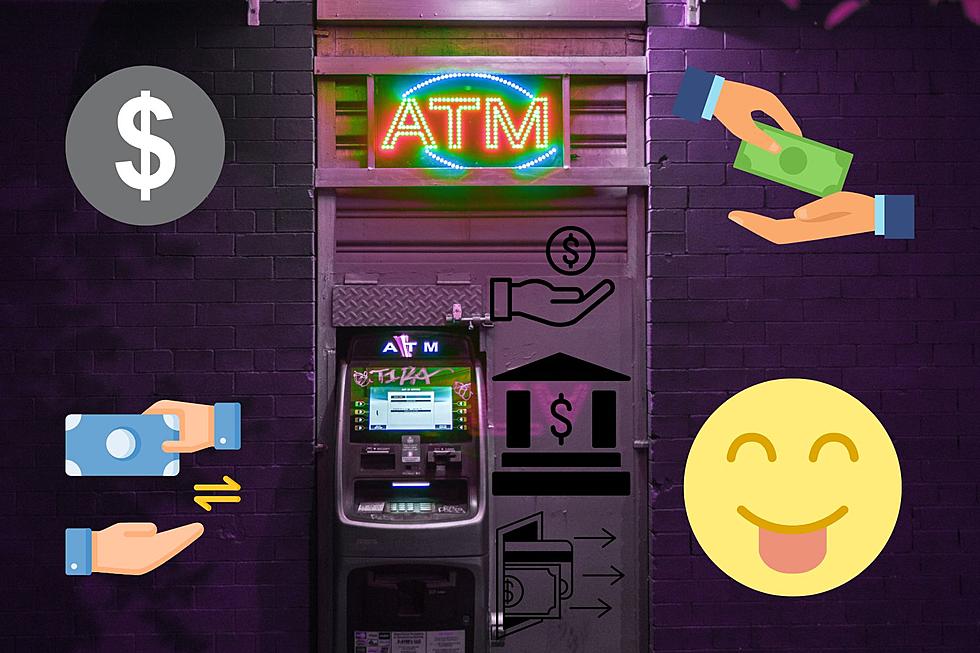
Michiganders Cost Banks Millions by Not Overdrafting
Overdraft fees equal billions of dollars in revenue for financial institutions each and every year. In just the first three quarters of 2022, US banks made 5.8 billion in revenue from overdraft fees and non-sufficient fund (NSF) fees alone. Read that again. 5.8 billion in revenue (that's actually significantly down from previous years).
What is an Overdraft / NSF Fee?
These honey holes for financial institutions are charged when you don't have enough money in your account to cover a transaction. FDIC.gov estimates the average overdraft / NSF fee to be $35. That's $35 per transaction. If you have only 98 cents in your account and that monthly app fee hits, you could be paying $35.97 for that 99 cent subscription. Watch the dollar signs add up if all of your app renewals happen to hit on the same day. It's hard to think that these fees, totaling billions, represent less than 2% of banks total annual revenue.
Financial instructions must inform you of any overdraft / NSF fees upfront and get a signature of the person opening the account acknowledging the banks policy.
Your Loss is Their Gain...and it's a BIG Gain
Financial institutions consider overdraft and NSF fees as REVENUE. They count on you over spending so they can charge you a 'convenience' fee. That 'convenience' fee can be as much as your bank desires, as there are no laws limiting what can be charged for overdrafts. For years banks made billions per quarter. In the third quarter of 2019 alone, account holders in the US paid 3.1 billion dollars in overdraft / NSF fees and over 10 billion throughout the year.
The Consumer Finance Protection Bureau put a spotlight on banks 'deep dependence on overdraft fees'.
JP Morgan Chase, with over 240 locations throughout the Mitten State, lost over 37% of overdraft / NSF fee revenue between 2019 and 2022, according to ConsumerFinance.gov. That's billions of dollars NOT going to banks and staying in Michigan consumer pockets.
Michigan Based Bank Eliminates Overdraft / NSF Fees
Michigan based Flagstar Bank eliminated overdraft / NSF altogether August 1st, 2022. In a PRNewswire statement Anne Berteisen, head of Retail Banking for Flagstar, had this to say about the change:
"We think the changes we're announcing today will help our customers manage their finances more confidently. Our new program brings lots of options to make it easier for people to stay on a sound financial footing. Still, we understand sometimes customers need assistance to get back on track, and when they do, they can count on Flagstar to help them."

Kudo's to Flagstar Bank. Overdependence on overdraft / NSF fees covering for consumers in a buy now pay later society may be the wakeup call we need.
Michigan's Quest to End Overdraft / NSF Fees
Michigan Attorney General Nessell isn't a fan of what she calls "exploitative', and took action last year to eliminate them altogether:
"Charging overdraft fees that can sometimes be more than five times the amount of the original purchase is abhorrent," Nessel said. "By eliminating these fees altogether, banks will show that they care as much for their customers' financial well-being as they do their own."
Nessel joined a coalition of Attorney Generals calling on the CEO's of banking giants like JP Morgan Chase, Wells Fargo, US Bank, and Bank of America to stop charging the fee.
Big Banks Making Less Now, Why?
The numbers started trending downwards during the pandemic. COVID stimulus checks and quarantines may have kept people in the black, but there is no clear explanation as to why it continues to drop. Have consumers finally done the math? Are we living within our means? Have we as a society finally learned to collectively adult?
Nah. Who wants to finance a yacht?
UP NEXT: 7 Tips To Help You Win The Mega Millions and Powerball Jackpot
More From 1240 WJIM AM









